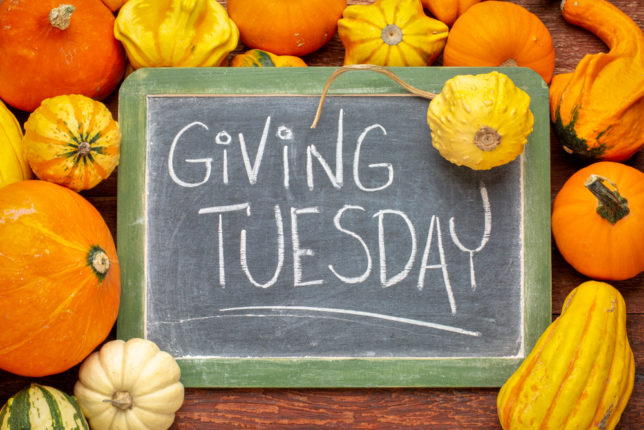Philanthropy
Charity and Big Philanthropy on Giving Tuesday
 Credit: marekuliasz. License: Shutterstock.
Credit: marekuliasz. License: Shutterstock.

Giving Tuesday surely ranks among the great success stories of grassroots charity. Dating back to only 2012, in scarcely a decade it has grown to become a widely recognized annual celebration of altruism. And there is certainly much to celebrate. Despite a modest drop from previous highs, Americans still gave nearly $500 billion to charity in 2022—and this doesn’t count all of the other important ways in which people can and do regularly practice generosity.
The Giving Tuesday Movement
Americans who participate in Giving Tuesday might not be aware that the movement itself is actually connected to a registered charity of the same name, which functions as a resource network for those who want to give back. Giving Tuesday Inc. was granted its own tax-exempt status by the IRS in 2020, and since that time donations made on the date have grown a full 25 percent, reaching an estimated $3.1 billion in 2022. Tens of millions of people participate in Giving Tuesday, and the campaign should be praised for what it has accomplished.
Its success is probably due to the way Giving Tuesday operates. It doesn’t pressure people to support a specific group or cause, tell them how they should give, or collect the donations itself as a middleman. Participants who decide to give money to a nonprofit are simply encouraged to donate to a group that is “doing work that aligns with your values” and are rightly reminded that “small community-led organizations” are often in particular need of support. The approach generally appears neutral, individual donor–driven, and decentralized—and it has clearly resonated with the American public.
Trust in Civil Society
Indeed, it’s interesting to think about Giving Tuesday in conjunction with the findings of Independent Sector’s fourth annual survey of trust in civil society, which was covered last month by the Capital Research Center’s Michael Hartmann. A major takeaway was that Americans trust nonprofits (which they almost entirely associate specifically with charities) significantly more than they trust philanthropy. While 52 percent reported high levels of trust in nonprofits, just 34 percent felt that way about philanthropy. Only 14 percent reported low trust in nonprofits, while 26 percent did so regarding philanthropy. The highest trust was placed in nonprofits that work in human services, animal welfare, health, and youth development. Survey respondents were also significantly more likely to trust nonprofits that operated in their local community, and “the public is deeply skeptical of large institutions,” according to the findings.
Rather strikingly, just 31 percent of respondents reported having a high level of trust in private foundations—a number that has plummeted from 54 percent in 2020. Trust in philanthropy writ large saw an especially pronounced decline among Republicans over that period, which perhaps reflects a greater public understanding of Big Philanthropy’s decidedly left-of-center political bent. This is a phenomenon which the Capital Research Center has documented extensively.
Against this backdrop, it may be worth noting that Giving Tuesday Inc. appears to have developed its own connections to Big Philanthropy. In 2022, the group received a $10 million contribution from the Bill & Melinda Gates Foundation. The Ford Foundation—among the most thoroughly politicized foundations in the country—is another major funder, and its executive vice president sits on Giving Tuesday’s board of directors. So does Jonathan Soros, whose father is probably the most famous liberal political megadonor in the United States.
Bottom-Up Generosity
This is not intended as criticism, but merely an observation that Giving Tuesday’s biggest contribution to our society might be the way in which it encourages the sort of bottom-up generosity to which Big Philanthropy is not particularly well-suited. For those who earnestly wish to see public participation in the day continue to grow for years to come, the hope is that Giving Tuesday maintains the ideologically neutral, individual donor–focused, decentralized approach to altruism that has characterized its success thus far.
Giving Tuesday’s website is a rich resource for ideas and local giving networks, and there are countless ways to make a positive difference in someone’s life. Celebrate Giving Tuesday in a way that is personally meaningful to you.


